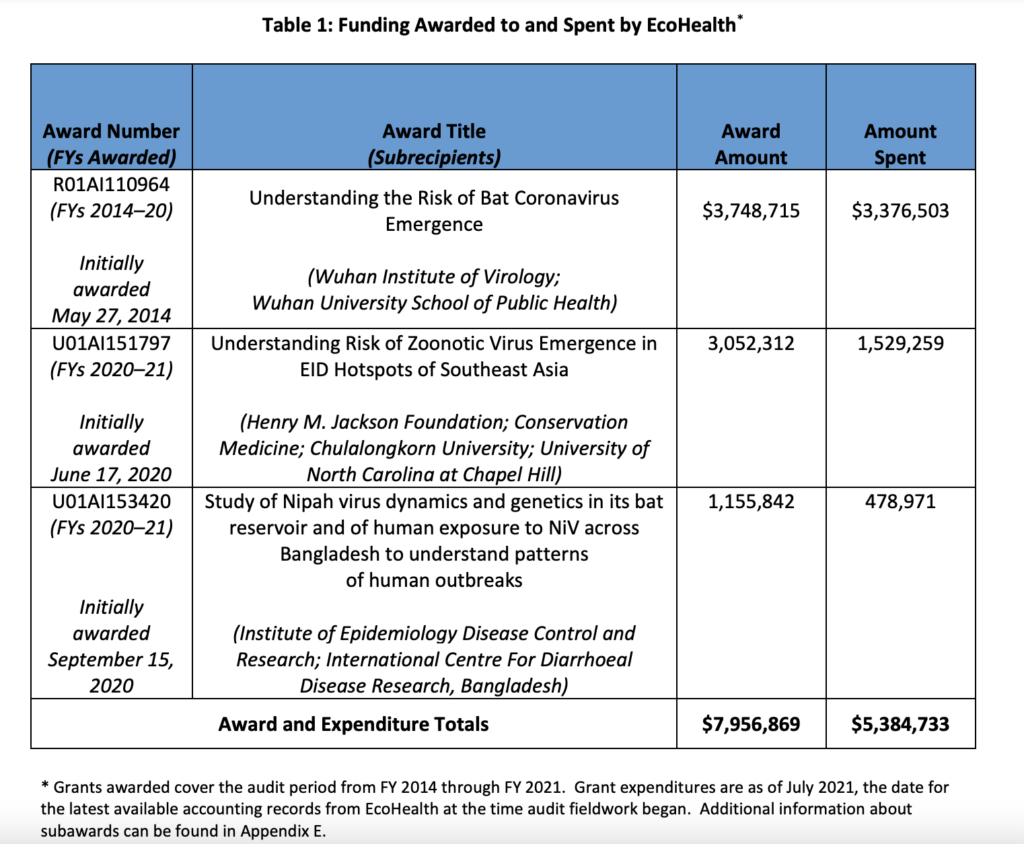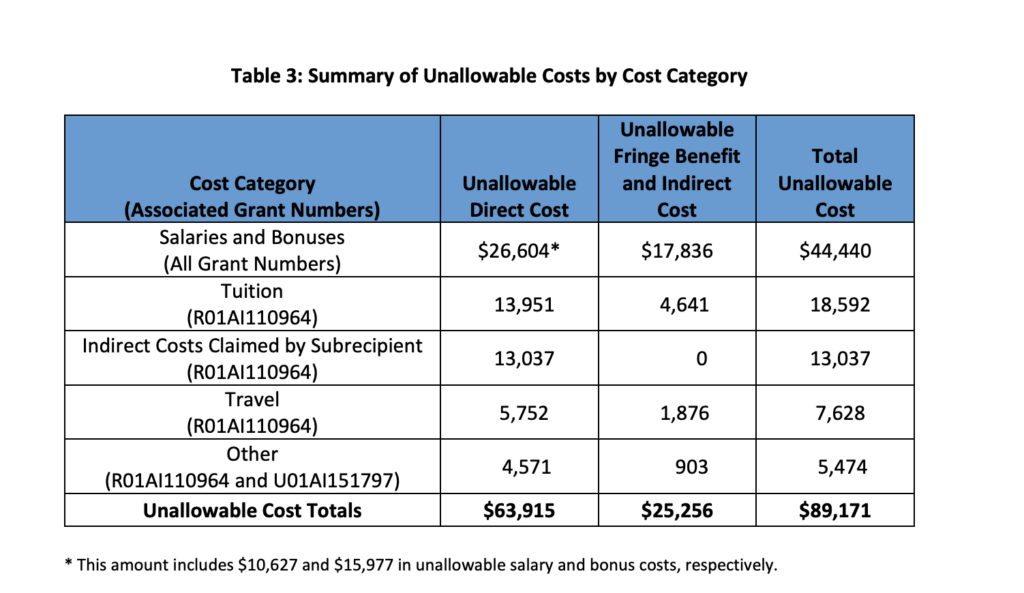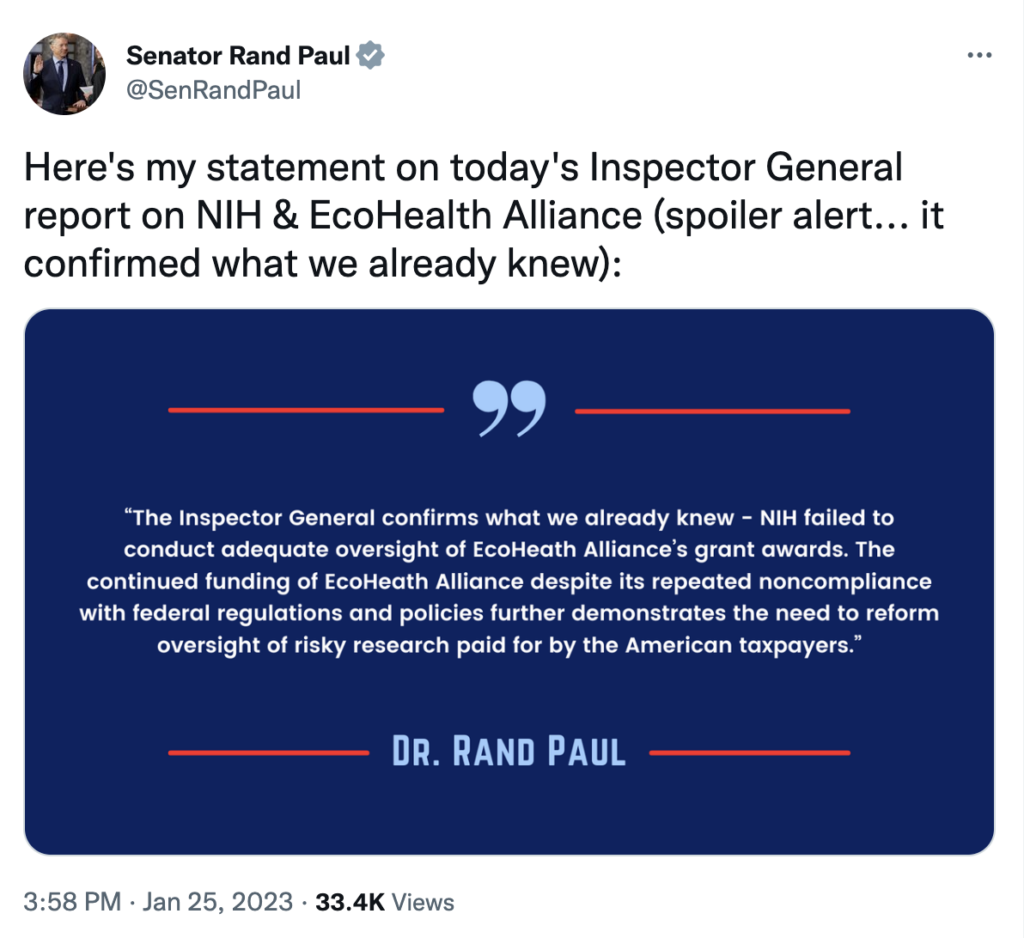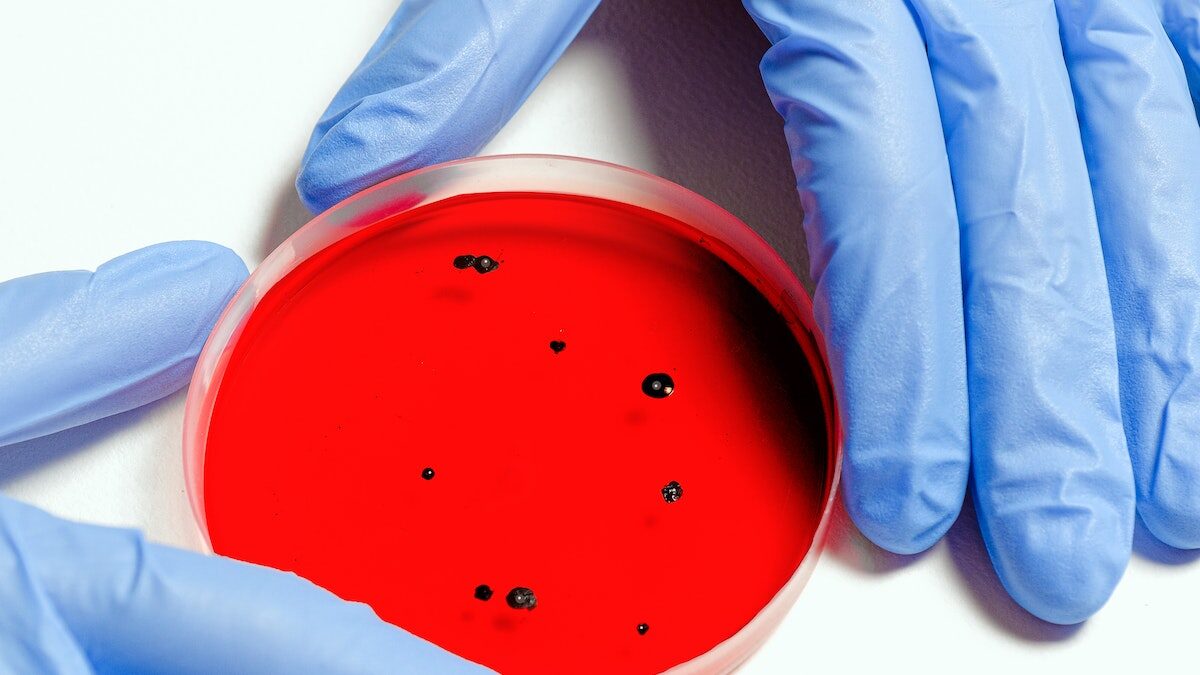The National Institutes of Health (NIH) did not give proper oversight to EcoHealth Alliance even after it awarded the organization millions of dollars to study bat coronaviruses, a new 72-page report from the Department of Health and Human Services Office of the Inspector General found.
More than a year and a half after the OIG announced an investigation into the NIH’s funding of the Wuhan lab suspected of playing a role in the Covid-19 pandemic outbreak, the inspector general officially announced that NIH and EcoHealth Alliance failed to comply with federal research and reporting standards. That included failing to adequately monitor what U.S. money was being used for and whether that research was safe and legal.
The report did not directly address whether EcoHealth Alliance engaged in illegal and dangerous gain-of-function research, as legislators and documents have alleged, but noted that NIH repeatedly neglected to refer questionable enhanced potential pandemic pathogens (ePPPs) research to the Department of Health and Human Services.
After EcoHealth Alliance failed to submit a mandatory report on its research progress the fall before the global Covid-19 outbreak, the NIH did not mention the report’s tardiness until nearly two years later in July 2021. That was a direct violation of HHS requirements, which state the NIH must follow up with grant recipients “no later than 30 days after the established due date.”
“This oversight failure is particularly concerning because NIH had previously raised concerns with EcoHealth about the nature of the research being performed,” the inspector general’s report states.
For more than a decade, EcoHealth Alliance received taxpayer dollars to conduct dangerous high-level research on various pathogens including coronaviruses. EcoHealth Alliance often used part of its grant money, at least $1.1 million from October 2009 to May 2019, to employ the help of the Wuhan Institute of Virology in China.
The NIH attempted in April of 2020 to cut off the money pipeline from EcoHealth Alliance to the Wuhan Institute of Virology (WIV) over fears that the lab “may have been involved with the release of the coronavirus responsible for COVID-19.” By July 2020, the NIH reinstated the grant it had previously severed under the condition that the EcoHealth Alliance ensured the WIV fixed its “facilities in China that posed serious biosafety concerns and, as a result, created health and welfare threats to the public in China and other countries.”
Because the WIV received American tax dollars as a sub-recipient for years, it was subject to certain reporting standards just like EcoHealth Alliance was. Yet, when the NIH requested an update about the WIV in November of 2021, EcoHealth Alliance said the WIV failed to turn over key documents.
“EcoHealth officials confirmed to us that WIV had not been responsive to its request to provide the scientific documentation and indicated it was unlikely to receive the requested information,” the inspector general stated in the report.
That observation confirms previous reporting, which suggested that EcoHealth Alliance stonewalled the release of lab records to the NIH after China barred investigators from inspecting WIV databases.
Mismanagement by the NIH also allowed EcoHealth to waste $89,171 of the $8 million U.S. taxpayer dollars granted to it from fiscal years 2014-2021 on “unallowable costs,” including salaries, bonuses, travel, tuition, benefits, and sub-awards to Chinese Communist Party-controlled entities such as the Wuhan Institute of Virology.


Sen. Rand Paul, R-Ky., who challenged the National Institute of Allergy and Infectious Diseases’ then-Director Anthony Fauci over the NIH’s funding of gain-of-function research, tweeted that the OIG’s report “confirms what we already knew.”
“NIH failed to conduct adequate oversight of EcoHealth Alliance’s grant awards. The continued funding of EcoHealth Alliance despite its repeated noncompliance with federal regulations and policies further demonstrates the need to reform oversight of risky research paid for by the American taxpayers,” Paul said.

The White Coat Waste Project, which first documented the connection between EcoHealth Alliance and the Wuhan Institute of Virology and discovered that the NIH helped EcoHealth Alliance circumvent a federal ban on gain-of-function research, also said the report confirms that “EcoHealth Alliance shipped tax dollars to Wuhan for dangerous animal experiments that probably caused the pandemic, violated federal laws and policies and wasted tax dollars.”
“Yet, the Wuhan lab remains eligible for even more taxpayer money for animal tests and just since the pandemic began, EcoHealth has raked in at least $46 million in new federal funds from the DOD, USAID, NIH, and NSF,” Justin Goodman, the senior vice president of advocacy and public policy at White Coat Waste, said in a statement.
Despite its history of noncompliance, EcoHealth Alliance secured another $653,392 in October of 2022 to sustain more bat-based coronavirus research, but that’s just the first installment. The five-year plan involves giving EcoHealth $3.3 million by 2027.
Goodman said Congress should “defund these rogue organizations once and for all” because, “Taxpayers should not be forced to bankroll reckless white coats who waste money, break the law and place public health in peril.”
Rep. Guy Reschenthaler of Pennsylvania and Sen. Joni Ernst of Iowa, both Republicans, joined together on Thursday to do just that with the reintroduction of a bill dubbed the Defund EcoHealth Alliance Act.
If passed, the legislation would not only bar American taxpayer dollars from going to EcoHealth, but it would require the U.S. Government Accountability Office to conduct a report on how much money given to EcoHealth ended up in the hands of communist China-controlled entities in the last 10 years.









